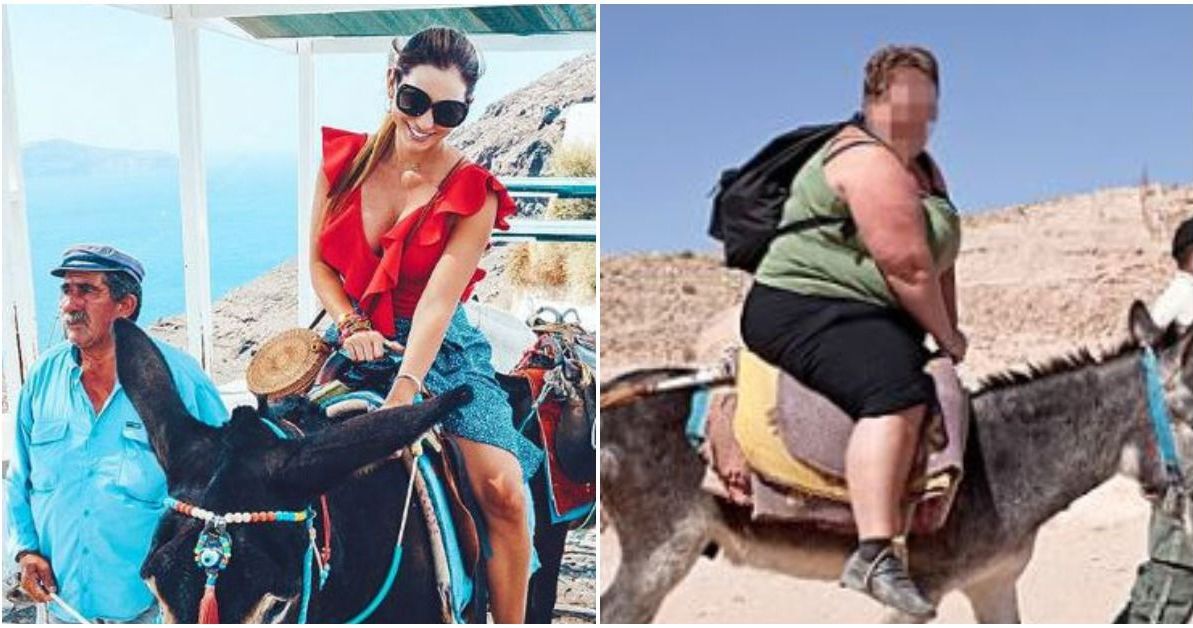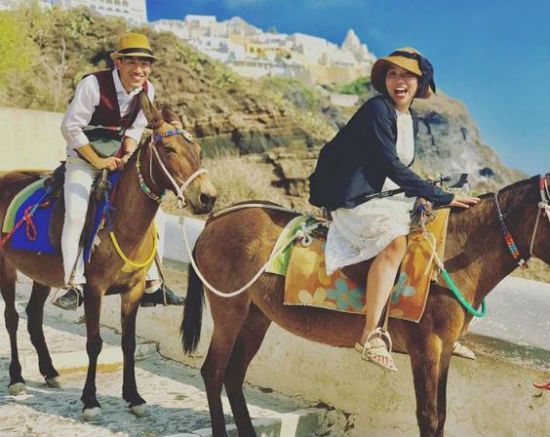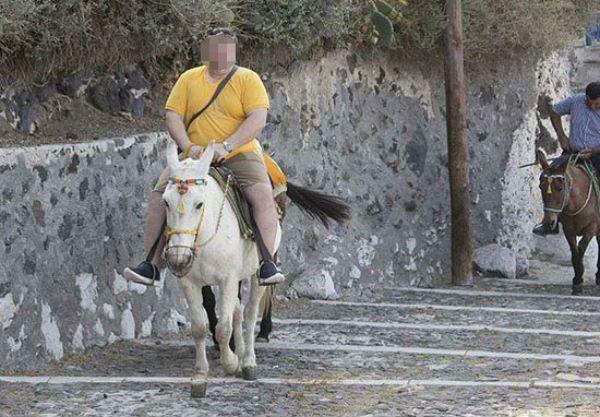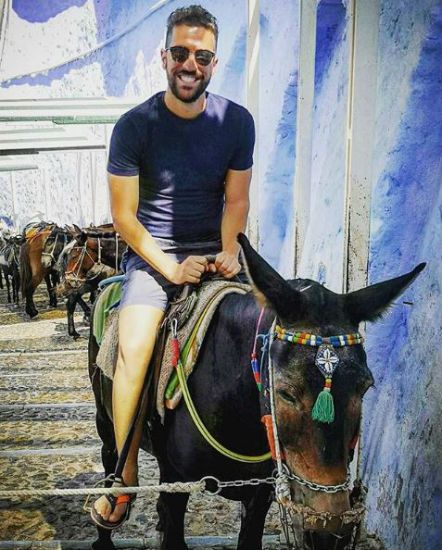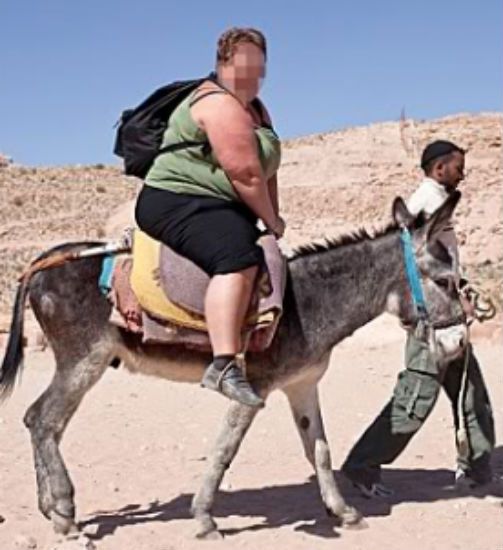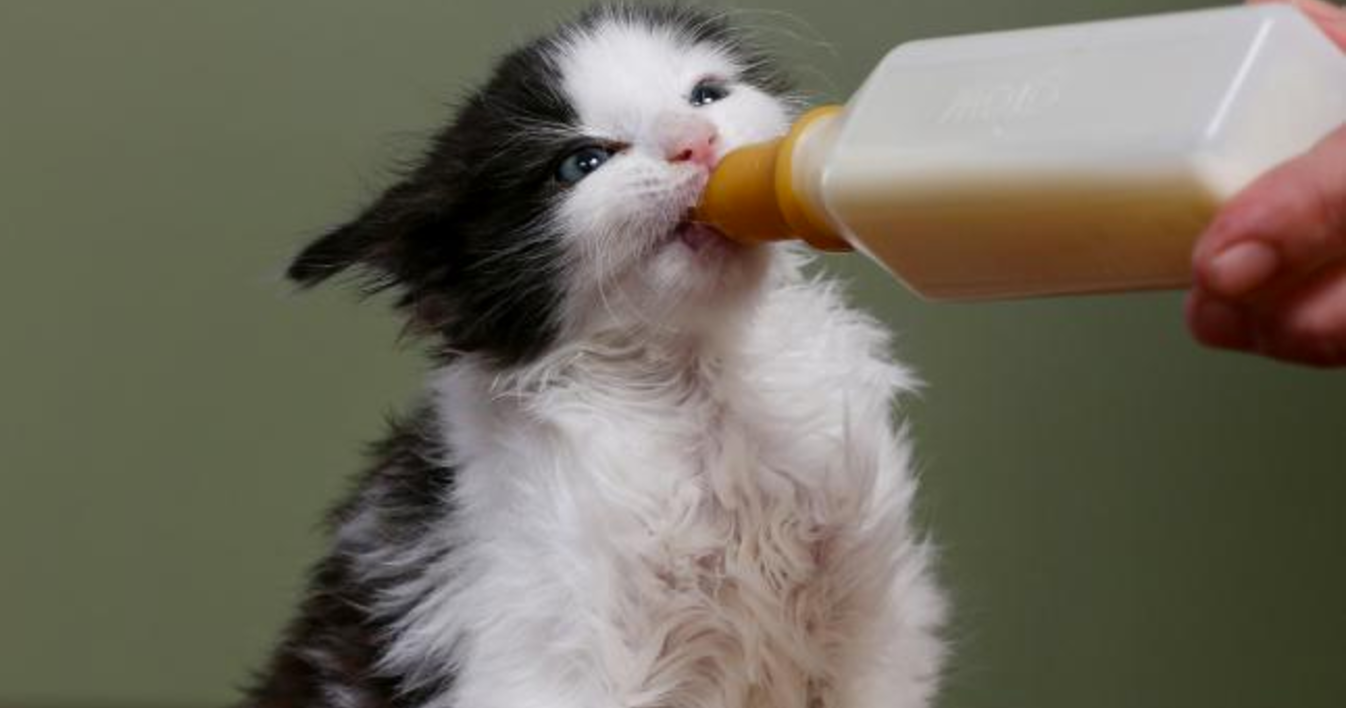If the newest Mamma Mia movie inspired you to plan a Greek getaway, you may have read about the Santorini donkeys.
The animals who carry tourists up and down the steps of this Greek island's capital city are world famous, and have been at work for decades.
It's a historic holiday activity that reflects a long tradition of using donkeys to travel around Greece.
But animal lovers say these donkeys are being abused, and new rules to protect them are singling out overweight tourists as one of the main problems.
"Obese And Overweight Tourists" Blamed For Spinal Problems
Santorini's donkeys are used as "taxis" to carry tourists, mainly passengers from cruise ships, up the hundreds of narrow steps to the city of Fira.
With more than five million tourists stopping at Santorini for a visit each year, the donkeys have no shortage of eager riders.
And being featured on travel shows, and in films like The Sisterhood of the Traveling Pants 2, has only attracted more interest in the donkeys.
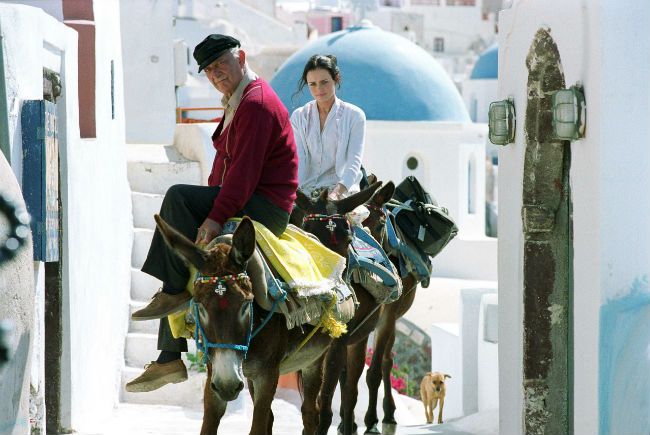
While the city's paths are too narrow (and full of stairs) for cars to pass through, it's just a half hour walk or a short trip by cable car to the top. Still, the donkeys remain a popular choice for adventurous travelers.
But in recent years animal rights charities have warned that Santorini's donkeys are being exploited and mistreated by taxi businesses.
This summer, a local charity called Help the Santorini Donkeys complained the animals were suffering after working long hours in the sun with little water or food.
But another complaint from the charity attracted more attention: overweight tourists from America, the U.K., and Russia are giving the donkeys spinal injuries, they claimed.
"The obese and overweight tourists, combined with the lack of shade and water, as well as the sheer heat and 568 cobbled steps, is what is causing such a problem," a spokesman for the group told Yahoo7 News.
No Passengers Over 220lbs
Christina Kaloudi, founder of the Santorini Animal Welfare Association, paints a bleak picture of life for Santorini's donkeys
She said they work in "terrible conditions without adequate water, shelter, or rest, and then I find them tied outside my shelter, barely alive."
After video of the animals allegedly being mistreated went viral earlier this year, more than 100,000 people from around the world signed a petition demanding improved conditions for the donkeys.
Protesters even took to the street asking for change, forcing the Greek government to take action this month.
Town officials in Santorini had already agreed to set work limits for the donkeys, but new rules from the government's Ministry of Rural Development and Food require even more protections.
Owners are now required to provide adequate food, water, and shade to the donkeys, along with clean living conditions and maintenance for their hooves.
The government has also banned "overweight" tourists from riding the animals, setting an upper weight limit at 220 pounds - or 20% of the animal's body weight - following recommendations by the animal charities.
Animal charities say the donkeys are still being made to carry heavy loads of garbage or building materials all day long:
The ministry said "multiple complaints" about animal welfare led them to introduce the new rules, which apply to working horses and donkeys throughout the country.
While this is a small victory for Santorini's animal charities, they say the island's donkeys are still overworked, and forced to carry heavy loads of garbage or building equipment up and down Fira's steps all day long.
